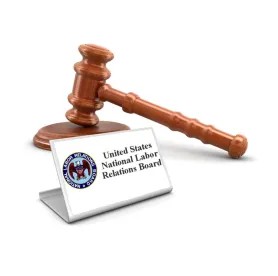On June 10, 2020, the National Labor Relations Board (NLRB) renounced jurisdiction over faculty employees at most religious educational institutions. The Bethany College case overruled the NLRB’s 2014 Pacific Lutheran University decision, through which many NLRB Regional Directors had ordered union elections at religiously-affiliated schools (such as a Catholic university in Seattle) In Bethany College, the NLRB adopted a new jurisdictional standard, adopted from a 2002 opinion from the U.S. Court of Appeals for the District of Columbia Circuit, University of Great Falls v. NLRB, under which it will not assert jurisdiction over an institution that: (a) holds itself out to the public as a religious institution, (b) is nonprofit, and (c) is religiously affiliated.
Pacific Lutheran had allowed the NLRB to exercise jurisdiction over faculty at religious educational institutions unless the institution held out faculty members as “performing a religious function in furtherance of its religious mission.” For example, Regional Directors previously asserted jurisdiction over faculty at St. Xavier University, the oldest chartered Roman Catholic educational institution in Chicago, and over Seattle University, a Jesuit institution, even though a faculty member testified he was “strongly encouraged to speak to Jesuit values” in his employment. The Pacific Lutheran decision and the NLRB’s later assertion of jurisdiction over religious institutions appeared to many courts and commentators as inconsistent with the Supreme Court’s 1975 decision in NLRB v. Catholic Bishop of Chicago. In Catholic Bishop, the Court rejected the Board’s jurisdiction over a Catholic parochial school and warned that the First Amendment prohibited the NLRB from engaging in a deep analysis of religious questions that presented an “impermissible risk of excessive governmental entanglement in the affairs of the church-operated schools.”
Even before Pacific Lutheran, the NLRB’s previous jurisdictional standard—whether a religiously-affiliated school had a “substantial religious character”—had been criticized by courts for excessively entangling the Board in religious affairs (in Universidad Central de Bayamon v. NLRB (1st Cir. 1986), for example). And just six months before the Board overruled Pacific Lutheran, the U.S. Court of Appeals for the District of Columbia Circuit overtly rejected its “religious function” test in Duquesne University of the Holy Spirit v. NLRB, 947 F.3d 824 (D.C. Cir. 2020). In Duquesne, the D.C. Circuit found the Board’s inquiry into whether the institution held out its faculty as having a “religious role” or a “religious function” required the Board to become excessively entangled in religious matters. “[T]he Board may not determine whether various faculty members play sufficiently religious roles. Defining which roles qualify would be far outside the competence of Board members and judges.”
In Bethany College, the NLRB finally acknowledged its 45-year struggle to find a test that complied with the Supreme Court’s warning in Catholic Bishop to stay out of religious matters for fear of violating the First Amendment. The Board reasoned that the prior Board failed to acknowledge the conflict between the rights of employees in the National Labor Relations Act, and the rights enshrined in the First Amendment to the U.S. Constitution, and then failed to accept the primacy of those constitutional rights over statutory rights. The Board criticized the “religious function” test because it “entails an impermissible inquiry into what does and what does not constitute a religious function.” The Board found that the new test “will remove any subjective judgments about the nature of the institutions’ activities or those of its faculty members and limit the Board to making jurisdictional determinations based on objective evidence.”
The Board provided further guidance for applying the third prong of the new Bethany College test—whether it is religiously affiliated. To meet this standard, “the institution must be ‘affiliated with, or owned, operated, or controlled, directly or indirectly, by a recognized religious organization, or with an entity, membership of which is determined, at least in part, with reference to religion.’” This standard is similar to but slightly different from the statutory religious discrimination exemption for religious educational institutions provided in Title VII of the Civil Rights Act of 1964, which applies to institutions “in whole or in substantial part, owned, supported, controlled or managed by a particular religion or by a particular religious corporation, association or society.” Since these standards are different, religious institutions seeking to avoid NLRB jurisdiction should consider examining and analyzing their circumstances to see if they satisfy all thee prongs of the new Bethany College standard rather than relying solely upon a previous Title VII exemption determination.
The NLRB’s decision appears limited to faculty employees who have some teaching role. The Board did not decide whether its jurisdiction extends to non-faculty employees of religiously affiliated educational institutions.




 />i
/>i

